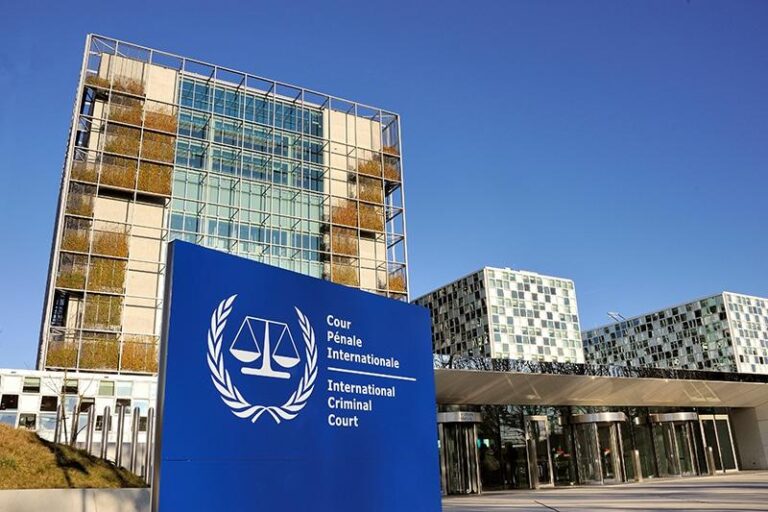In a developing story that could escalate tensions between Washington and international legal institutions, Reuters reports that the United States is considering imposing comprehensive sanctions on the entire International Criminal Court (ICC). This unprecedented move signals a sharp shift in the U.S. approach toward the global tribunal, which has long been a focal point of contention, particularly over investigations involving American personnel and allies. The potential sanctions reflect deepening frustrations in the U.S. administration and could have far-reaching implications for international justice and diplomatic relations.
US Considers Broad Sanctions Against International Criminal Court Amid Heightened Tensions
The United States government is reportedly preparing to impose sweeping sanctions targeting the International Criminal Court (ICC), marking a significant escalation in its long-standing tensions with the institution. Sources familiar with the matter have indicated that these broad measures could restrict financial transactions, freeze assets, and limit the ICC’s operational capabilities abroad. This move signals a tough stance from Washington, aiming to pressure the court over its investigations involving U.S. personnel and allies.
Among the anticipated restrictions are:
- Asset freezes on ICC officials and entities
- Restrictions on international banking access
- Prohibitions on U.S. businesses cooperating with the court
- Diplomatic consequences affecting ICC member states
| Measure | Potential Impact |
|---|---|
| Financial embargo | Cuts ICC’s budget and funding sources |
| Travel bans | Limits key ICC officials’ international mobility |
| Trade restrictions | Prevents U.S. firms from collaborating with ICC |
Potential Impact of Sanctions on Global Justice and International Relations
The looming sanctions against the International Criminal Court (ICC) could send shockwaves through the framework of global justice, potentially undermining the institution’s operational capacity and its perceived impartiality. Such punitive measures risk creating a chilling effect on international legal cooperation, deterring states and officials from supporting the ICC‚Äôs mandate. Critics argue this could embolden state actors to flout accountability, weakening efforts to address crimes against humanity and war crimes worldwide. The situation also risks politicizing justice, as sanctions may be viewed less as a response to misconduct and more as tools of geopolitical leverage.
From a diplomatic standpoint, the move could strain U.S. relations with allies and partners who back the ICC, complicating consensus on broader international law enforcement. The following table summarizes potential ramifications of sanctions on the ICC for various international stakeholders:
| Stakeholder | Potential Impact |
|---|---|
| ICC Staff and Investigators | Operational disruptions, resource constraints |
| US Allies | Diplomatic tension, conflicting policies on accountability |
| Victims of International Crimes | Delayed justice, reduced recourse options |
| Global Justice Advocates | Erosion of support and legitimacy for international law |
- Risk of politicization: Justice mechanisms may be exploited for strategic gains.
- Reduced cooperation: States may hesitate to collaborate, fearing repercussions.
- Undermined deterrence: Criminals might exploit weakened enforcement to evade accountability.
Analysis of US Motivations and Possible Responses from ICC Member States
The United States‚Äô impending threat to impose broad sanctions against the International Criminal Court (ICC) stems from a complex interplay of geopolitical and domestic interests. Washington views the ICC’s prosecutorial actions, particularly those targeting American personnel or allies, as an infringement on its sovereignty and military operations abroad. Critics argue this move reflects a strategic attempt to deter international legal scrutiny and maintain unchallenged global influence. Internally, the U.S. administration is also responding to pressure from powerful defense and intelligence sectors that warn of potential operational risks and diplomatic fallout resulting from ICC investigations.
Responses from ICC member states are expected to be varied but firm, as many view the court as a crucial pillar of international justice. Potential actions might include:
- Diplomatic protests and calls for multilateral dialogue to resolve tensions
- Abolition or reduction of cooperation with U.S. policies related to international law enforcement
- Enhanced support and funding for the ICC to reinforce its legitimacy and operational capacity
| Region | Likely ICC Response | US Concerns |
|---|---|---|
| Europe | Strong diplomatic support for ICC | Legal autonomy challenge |
| Africa | Mixed, dependent on political ties | Impact on military aid |
| Asia-Pacific | Focus on regional stability | Geostrategic alliance shifts |
Recommendations for Diplomatic Engagement to Mitigate Escalating Conflicts
In light of recent threats to impose sweeping sanctions on the International Criminal Court (ICC), it is imperative that diplomatic channels are prioritized to prevent further deterioration of international relations. Engagement through multilateral forums, such as the United Nations and regional alliances, can create a platform for dialogue that addresses the root concerns of all parties involved. This approach should include:
- Confidence-building measures to reduce mistrust.
- Third-party mediation to foster impartial negotiation.
- Structured timelines for de-escalation of punitive actions.
These steps are crucial to maintaining the integrity of international legal institutions while balancing geopolitical sensitivities.
Moreover, diplomatic efforts must emphasize transparency and communication to mitigate unintended consequences of sanctions, which could exacerbate tensions internationally. A framework for ongoing assessment and adaptive responses should be developed, incorporating:
| Diplomatic Strategy | Purpose | Expected Outcome |
|---|---|---|
| Joint Fact-Finding Missions | Clarify disputes and misinformation | Enhance mutual understanding |
| Regular High-Level Consultations | Maintain dialogue continuity | Prevent escalation |
| Engagement with Civil Society | Incorporate diverse perspectives | Increase legitimacy of actions |
Through these measures, there is potential to safeguard international justice mechanisms without compromising diplomatic stability.
Insights and Conclusions
As the geopolitical landscape continues to evolve, the potential imposition of U.S. sanctions targeting the entire International Criminal Court marks a significant escalation in tensions between Washington and The Hague. Observers will be closely monitoring how this development might affect international justice mechanisms and diplomatic relations. Further updates are expected as the situation unfolds.




